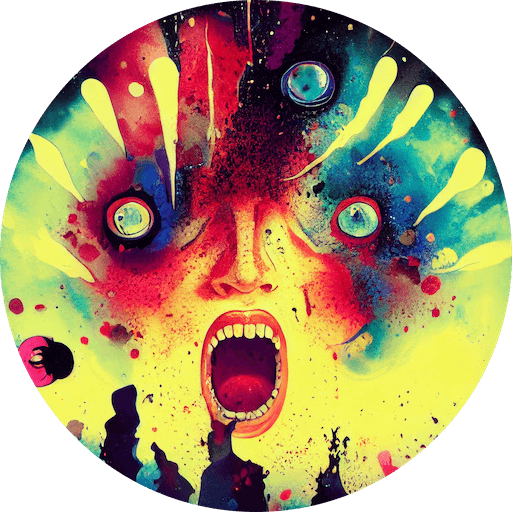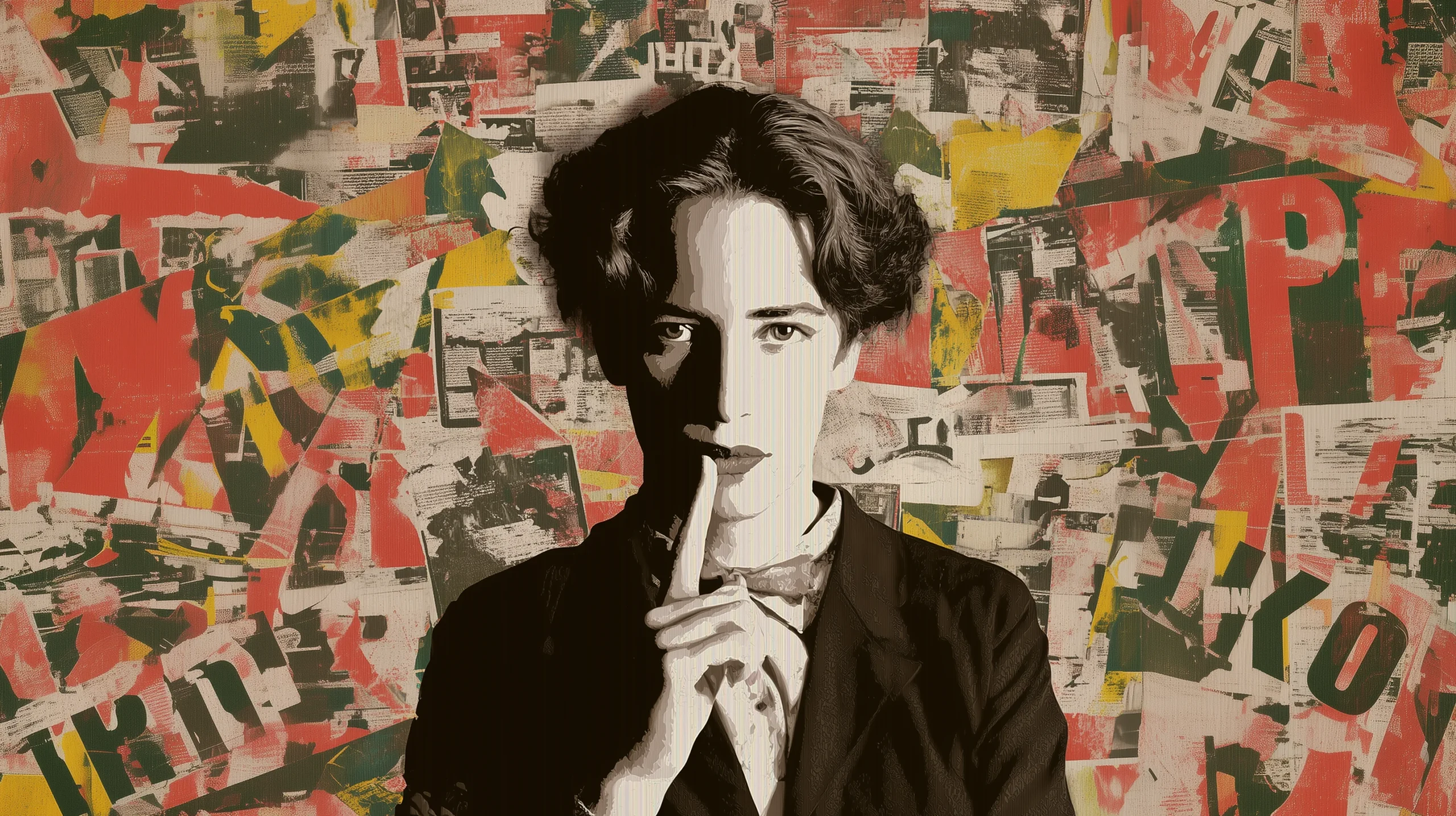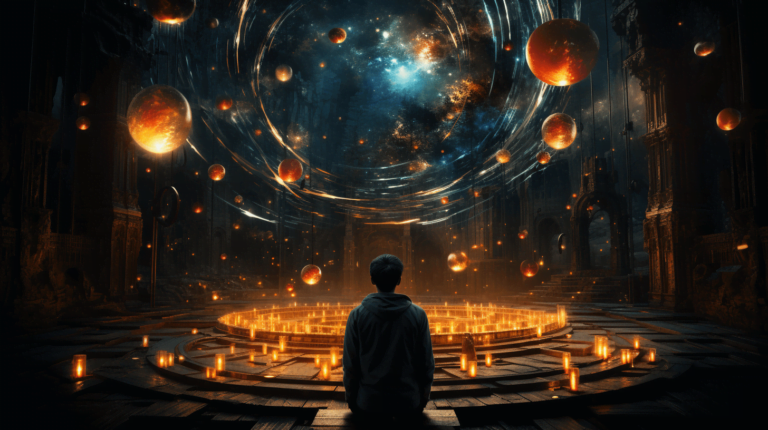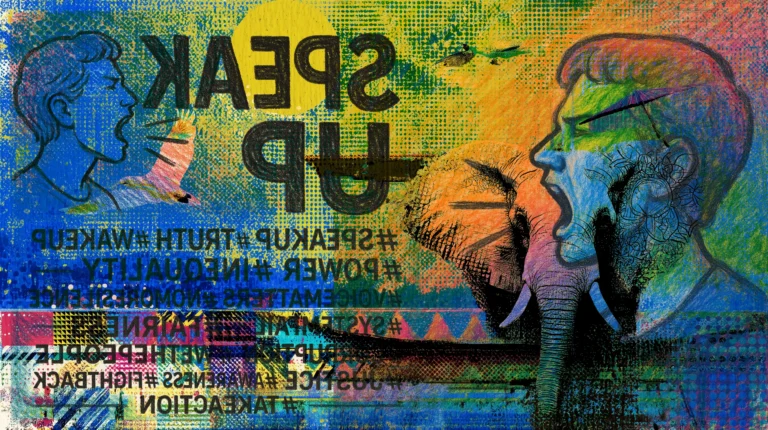Hannah Arendt for A.I. and Data Science
Arendt studied totalitarianism by looking closely at Nazi Germany under Hitler and at Stalin’s Soviet Union. In The Origins of Totalitarianism she warns that the “ideal subject of totalitarian rule is not the convinced Nazi or the convinced Communist, but people for whom the distinction between fact and fiction and the distinction between true and false no longer exist.”
When a movement blurs reality and floods people with manufactured facts, it makes them easy to rule. She also argues that widespread loneliness prepares people for such domination. (Goodreads, Wikipedia)
She later reported from Jerusalem on Adolf Eichmann, a key organizer of the Holocaust. What shocked her was not a demonic mastermind but a joiner who stopped judging.
In her words, “It was sheer thoughtlessness something by no means identical with stupidity that predisposed him to become one of the greatest criminals of that period.”
Her point was not to excuse him. It was to show how great crimes can grow when ordinary functionaries refuse to think about what they are doing. (Public Seminar)
Here is the lesson for A.I. and data science. Systems that erase the line between fact and fiction through synthetic media and engagement incentives can produce exactly the subjects Arendt feared. Feeds that reward outrage over truth create a climate where fiction feels normal and judgment goes quiet.
Dashboards that hide uncertainty tempt operators to click approve without thinking. When that happens at scale, harm repeats itself with machine speed. The problem is not only the liar or the propagandist. It is the many who stop judging. (Wikipedia)
That danger appears today when decisions are hidden inside algorithms. Learning a few clear ideas from Arendt helps us keep space for judgment, freedom, and shared facts.
Two lines set the tone.
- “Power corresponds to the human ability not just to act but to act in concert.” (Wikipedia)
- “The sad truth is that most evil is done by people who never make up their minds to be good or evil.” (Philosophy Break)
The first line says real power is something people do together. The second warns that harm spreads when people refuse to judge and simply go along. Both lessons matter when a model says yes or no and a person clicks approve without thinking.
Labor, work, and action.
In The Human Condition Arendt describes three kinds of human doing. Labor keeps life going. Work makes durable things like tools and laws. Action is when we speak and act with others in public. That is where freedom appears, because action lets something new begin. She puts it sharply in another line from the same book: “Action without a name, a ‘who’ attached to it, is meaningless.” Public acts matter because someone stands behind them. (hac.bard.edu)
Plurality.
People share equal dignity yet remain different in who they are. Politics is the space where different voices appear to one another. A healthy public world lets those different voices be seen and heard.
Natality.
Arendt’s word for the human capacity to begin. Each birth is a new start. Each genuine act can open a path that was not there before.
Power and violence.
Power grows when people act together. Violence is a tool that forces outcomes. It may bring quick results, but it cannot build lasting power. This is why free institutions need living public agreement more than force. (Wikipedia)
Truth and storytelling.
Facts matter. Yet meaning does not come only from definitions and formulas. Arendt writes, “Storytelling reveals meaning without committing the error of defining it.” Stories let us understand a life or an event without crushing it into a single label. (hac.bard.edu)
After the revolution.
Change creates a new status quo. Arendt’s famous warning is simple: “It is well known that the most radical revolutionary will become a conservative the day after the revolution.” We fight to transform a system, then we rush to protect what we just built. (Wikiquote)
These ideas are not abstract decorations. They are tools for daily judgment.
What this means for A.I. and data science
Keep human action visible.
Models predict behavior from past data. Useful, yes. But if we treat people only as patterns, we forget their capacity to begin again. Interfaces should allow a person to correct the record, make a new choice, and be heard. Do not trap someone inside yesterday’s label.
Protect plurality in data and evaluation.
A single accuracy score can hide harm. Measure performance for different groups and in different contexts. Ask which mistakes hurt whom. Invite people who are affected to help define what “fair” and “harm” mean in the real setting, and publish the tradeoffs in simple language.
Support beginnings, not only loops.
Recommenders that chase clicks narrow experience. Add features that open new paths and help users discover things beyond their habits. Reward learning and exploration, not only repetition.
Share power, do not hoard it.
Opaque central systems feel like force from above. Build with people, not over them. Publish model cards and data notes that non experts can read. Give users a clear right to appeal to a human who can change the outcome. That is power “in concert,” not control by a few. (Wikipedia)
Keep judgment alive in the loop.
Arendt warns against thoughtlessness. “Human in the loop” must mean real time to think and real authority to override. Show reasons, evidence, and uncertainty, not just a score. When staff follow or overrule a model, ask for a short written reason and review those reasons regularly.
Remember the day after.
After a big launch, teams defend the new status quo. Plan short “day after” reviews at 24 hours, 7 days, and 30 days. Ask what the system hid, who is worse off, which incentives you created, which groups see higher error or friction, and what you must change now. The point is to keep freedom for new beginnings inside your own product culture. (Wikiquote)
Example
Goal: predict who will miss follow up visits. A narrow use would deprioritize those patients. The Arendt path remembers natality and action. Use the prediction to open doors. Offer transport help and flexible slots. Make human phone calls. Measure health outcomes, not only no show rates.
Closing
Arendt did not write code. She wrote about people who build a world together. Her lessons travel well. Power is acting together. Freedom is the space to begin again. Truth needs public care. Stories carry meaning that numbers alone cannot see. If we build A.I. with those ideas in mind, our systems will not only be smart. They will be worthy of people.
So we end with a simple pledge inspired by Arendt’s warnings about Hitler’s regime and her portrait of Eichmann. Keep the facts visible and checkable inside every product. Keep judgment alive by showing reasons and uncertainty and by giving people time and real authority to say no.
Keep plurality alive by measuring errors across groups and by inviting criticism from those affected. Protect the public realm by marking provenance, clarifying sources, and lifting voices that argue in good faith.
In short, never build for the click at the price of the truth, and never let a score become an alibi for conscience. Power that is worthy of people grows when we act together in truth. That is how we refuse the thoughtlessness that Arendt exposed, and how we make A.I. serve a human world. (Goodreads)
I did not have the best teachers as a child. This is not blame, only my experience. I was a weird child and there was little understanding of child development then. One framework for every mind. I still earned two master’s degrees, yet a part of me carries the lost childhood, the pain, and the anger.
Now I am learning from zero again. I use Brilliant for maths and DataCamp for programming, and I use AI to make ideas clearer and to ask the same question as many times as I need. Even so, AI is not the answer to human relationships. What defines us is how we relate. Solitude is sweet in the right dose, but too much sweetness makes you sick. Times are hard and uncertain, yet growth is still possible and even fun. The brain rewards it with dopamine and serotonin, and life rewards it in simple material ways.
From a nondual view, when everything collapses the spiritual and the material are the same movement. The way forward is to grow here, take chances, face problems, and become stronger. Build good systems, and let the old ones break if they must. It is painful and it is honest. There is no blame and there is no fixed meaning. I am the meaning maker, and the universe is waiting to see what meaning I will create.
Data does not speak on its own. It follows intention. The same dataset can be read toward harm or toward repair.
Example one. A clinic predicts who will miss appointments. With a profit first aim, it drops high risk patients and calls it efficiency. With a care first aim, it uses the same scores to offer transport, reminder calls, and flexible slots, then measures health outcomes and closes the gap.
Example two. A platform sees that outrage drives clicks. With an ad aim, it boosts rage and fragments trust. With a civic aim, it downranks bait, shows sources, lifts diverse reporting, and trades short term clicks for long term trust. The point is simple. Intention sets direction. Use data to clarify truth, widen freedom, and repair harm, not to feed envy, jealousy, anger, hatred, or separation.
“Body and spirit are one. One principle, one Logos. Inseparable. The same One, here and now.”







